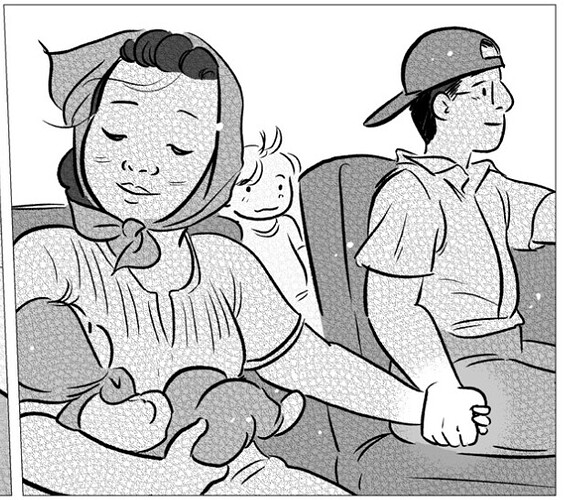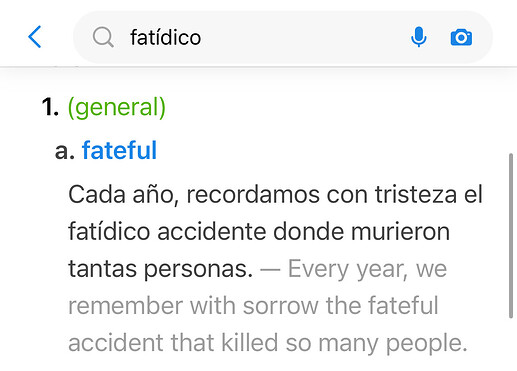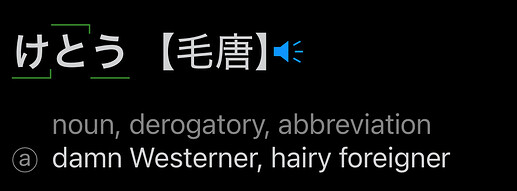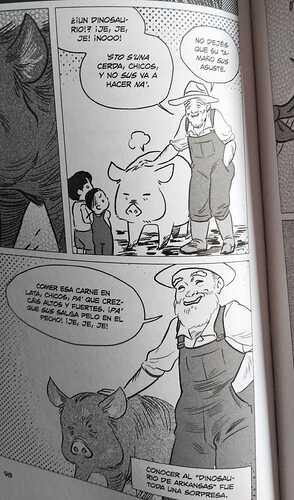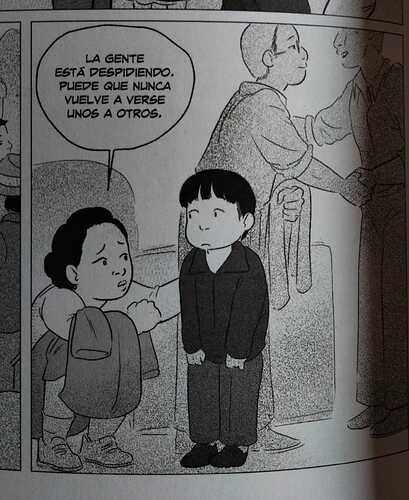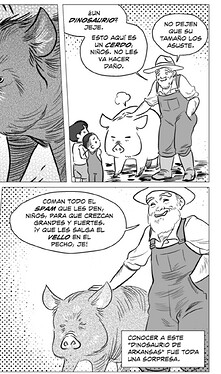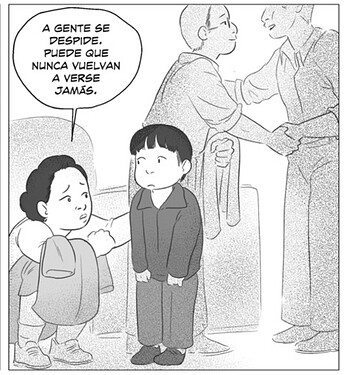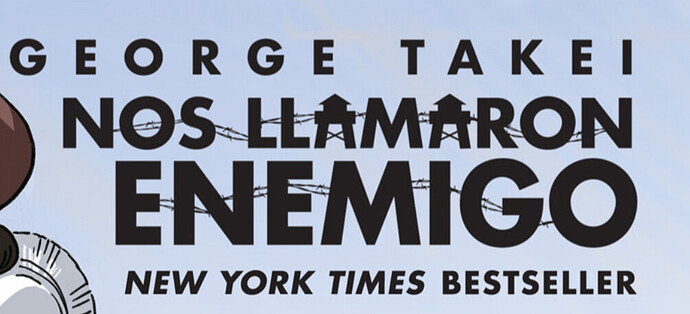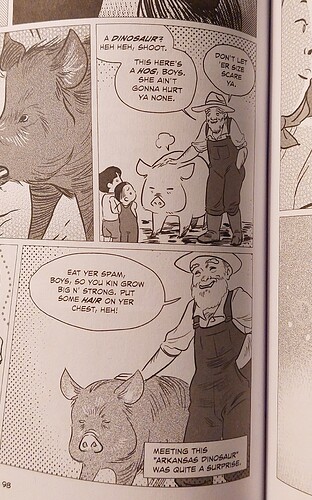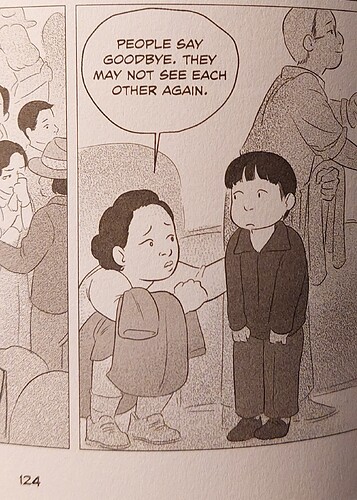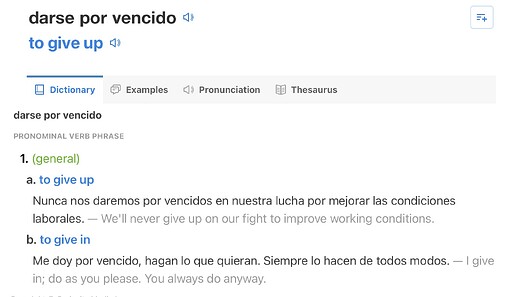for people interested in more context and other personal stories, smithsonian magazine had a very good article about these camps in their december issue, specifically looking at one family who entrusted their farm to a man they knew and trusted rather than sell it off at cut rate prices or have it confiscated as “abandoned”. There aren’t a lot of happy stories in situations like this, but it is a reminder that in dark times kindness and decency are radical acts.
Thanks, that was an interesting read. I’m looking forward to learning more about this period.
Got a bit of a late start, but managed to finish the week 1 reading just in time.
I realized when I was reading that February 19 is in just a few days…
Thoughts on week one
I started typing up a lot of thoughts and then realized they were kind of personal and not really super relevant to this week’s reading specifically, so I moved them to a study log post draft instead…
Reading this story in Spanish right now really hits hard. I’ll just leave it at that.
Besides that, I echo the thoughts earlier in the thread about how it was interesting that George’s parents managed to insulate their children from the horrors. It made me think, too, about children in Gaza experiencing situations so profoundly horrific that no amount of parenting magic can protect them…
On a much lighter note, I like the structure of the book so far. It moves pretty fluidly back and forth in history. The Spanish is really doable, too, except there’s a lot of specialized vocabulary I’ve never encountered before. I keep looking up words just to double-check that they mean what I think they mean, and yeah, usually they do.
Also, I appreciated the one line of Japanese text on page 42, because I could read that just fine, haha. One of those fun moments where I can use two of my languages at once ![]() .
.
This is so true!! Excellent example, and thank you for sharing that article, too. It actually made me cry, thinking about how one person could make such a profound difference in the lives of others in a situation like that. I wish American schools did a better job of highlighting individuals like Fletcher as an example for people to emulate.
We have a tendency to think of history as this thing that happens on a grand scale with larger-than-life movers and shakers making all the big decisions, but I think much of the responsibility actually rests on the shoulders of the average person. If enough white people had been like Fletcher, atrocities like Japanese internment could’ve perhaps been adverted, or at least mitigated.
We’re all part of history, too. It’s up to us whether we choose to do nothing and let atrocities happen around us, or whether we choose to do what we can with the power that is available to us to do the right thing for someone else.
week 1
I was impressed by how much history he managed to squeeze in, such as his parents who’d lived in the US for 25 years were prohibited from applying for citizenship or Earl Warrren’s responsibility for leading the charge against them. For non-US readers, Earl Warren would become our Supreme Court chief justice and was instrumental in overturning racial segregation in our public schools and allowing interracial couples to marry. It is hard, for me, to keep this sort of transformation in mind, that over 20 years we can not only overcome our own personal bigotries but work to remove them from society. Right now 20 years seems an eternity.
Week 2 has begun!
welp, I’m crying as I read this.
Week 2:
Page 81
Bug catching - very Japanese!
Page 82
The “Americans and Japanese” version of “Cowboys and Indians” was very interesting. I’m sure during any war there are children playing war games and imagining fighting the enemy. But fascinating that these children who were both Japanese and American were playing the game. And moreover they all wanted to be the Americans, even though they were ethnically Japanese and incarcerated by the Americans.
Page 92
I had managed to work out what offensive phrase “sakana beach” was supposed to sound like - although I got it from the word “beach” really. I’m not sure “sakana” really sounds like “son of a”…
Page 105
Eefara - you left us on a cliffhanger! I wonder who is at the door…
I wonder if anyone else is used to reading manga and finding the flow of the comic panels is different from what they are used to?!
Finished the week 2 reading and about half of week 3’s, haha.
Page 80
I didn’t actually know the word “kozoh” in Japanese, so I typed it and looked it up and it seems to be 小僧! Hilariously, I didn’t know “pícaro” in Spanish, either, so the definition provided was of no help. Well, I guess I learned two words for the price of one!
It definitely is different! I’ve read quite a few graphic novels in English, so it didn’t take too much getting used to for me, but I have been reading mostly manga lately, so I keep finding myself reading right to left accidentally…
Also, I have another article to share! This was a story that happened to one of my friend’s relatives. She received this handmade quilt from a Quaker woman, and it helped remind her that someone on the outside cared about her.
That website has lots of other stories about various objects that belonged to American Japanese people who were confined in these camps.
Week 3 has begun!
I didn’t have much time for posting last week, but I’m now done with week 2 and 3.
That’s interesting, the translation in my edition of the book is “trasto”, which means roughly the same but I feel is more common, at least nowadays.
On the topic of translation choices, I found it interesting the way the farmer’s speech was translated. I suppose in the original version he has a thick Arkansas accent, and the translation to me makes it sound like he’s from Andalucia, or a another rural southern part of Spain.
It also made me think about the way George’s mum speaks, you can clearly understand her but her grammar is sometimes off, I wonder how that comes across to Spanish learners?
Story apart, the linguist in me was very alert during this reading.
As for the story itself, still as heartbreaking, still as informative… I’m glad we got to see someone who tries to help, the librarian, and thank you @fallynleaf for sharing those articles. It’s good to look for the helpers, even with current events.
That’s a great insight on the translation of accents and the gramatically incorrect speech of someone not fully first language. I’d missed both of those points.
I don’t think I’ve ever done so much extra-curricular reading as with this bookclub! I’ve enjoyed the articles shared so far. I ended up reading about how the British handled a similar issue with Germans and Italians residents during world war 2. That was more complicated as some of the Germans were Jewish people who had fled to the UK from Germany because of the oppression they faced there.
As I understand UK had a more relaxed approach initially, and had a system where people were judged on an individual basis,. They were divided into categories according to their level of perceived risk.
However, once the Germans got close to British shores in mid 1940, the concern increased and most Germans were ultimately rounded up. Winston Churchill apparently famously said in a cabinet meeting - “Collar the lot!”
Finished the week 3 reading!
Definitely cried while reading this… H.R.4103 getting passed 111-33, this part felt way too familiar… And the lawyers working tirelessly to try to help people who got exploited by this bad law, that also reminded me a lot of right now. I have friends who are immigration lawyers, and they’ve been incredibly busy lately…
I also learned a few words—in Japanese!
毛唐 was a new one for me as well; I’ve never seen that one before in any Japanese media I’ve read or watched! All the frequency dictionaries I have installed on Yomitan have pretty low frequency numbers for it, so I wonder if it’s a somewhat old-fashioned term that isn’t used much anymore…
弁士 was the other new one for me! I’ll definitely have to see if I can watch one of these films sometime, just to experience it. Though I feel like there’s no way my Japanese is up to the task ![]() .
.
I also missed it as well! I wonder if maybe our versions were translated differently? monace, do you have a photo of a page with an example of this so that we can compare?
Yes of course, here is page 98 for example, where we see the farmer.
The italicised words and apostrophes are words that were changed from the standard, so for example:
'sto s’una cerda, y no sus va a hacer na’
Would be:
Esto es una cerda, y no os va a hacer nada.
Decir na’ instead of nada, or any word that ends in -ada / -ado and skipping the ‘d’ (ex: hablado → habla’o, todo → to’o, or simply to, callada → callá) is very typical in most southern spanish accents, and some Latinamerican accents as well. Same with -ara, as in the second panel, where he says “pa’ que crezcáis”, as in “para que crezcáis”.
Also, using the infinitive form of a verb to express the 2nd person plural imperative is very common in Spain: instead of “Comed esa carne”, “Comer esa carne”.
As for the mother, here is an example from page 124:
The “standard” way of saying this would be:
La gente se está despidiendo. Puede que nunca vuelvan a verse unos a otros.
The pronominal verb gets “depronominalised” (despedirse → despedir), and the subjuntive gets changed to indicative (vuelva, o en este caso vuelvan since the subject is actually plural → vuelve).
I would be interested to see if there are any differences in other editions of the book, and also to see how it was originally written in English.
In any case, it is a nice detail, and adds to the realism of the story.
ETA: sorry about the lengthy post, i just love grammar so much ![]()
No, this is awesome! Thank you so much for the write-up! It’s so interesting to see how it got localized differently; my LA copy feels very vanilla in comparison, haha.
Just finished with week 2; I’m a bit behind, but should be catching up over the next day or two.
Thanks for sharing those pictures of your edition, as mine is very different!
While I’m sharing screenshots - I just noticed a small detail I hadn’t seen before on the front cover. The title of the book has barbed wire and sentry towers worked into it.
Whoa this is really interesting, thank you for sharing! And thanks for the explanations, too!
Thank you, too, Micki, for sharing photos! Yours is what mine looks like, too.
I went ahead and asked my mom if I could borrow her copy in English so that I could see what the original text said.
Here is the farmer from page 98:
And here is the mother from page 124:
So monace’s edition seems a lot closer to the original than ours!
It’s really interesting how the translations were so different. I think the one that I have is absolutely better for learners, haha, but I do love the flavor that the other edition adds.
If I had read that one first, I wonder if I would have picked up on stuff like the mother’s grammar being a little incorrect. My Spanish grammar isn’t super great, so there’s a strong chance a lot of that would’ve totally gone over my head ![]() .
.
We’re on the final week! Time to finish!
Oh wow that’s really interesting!
I wonder why they chose to take the accent / dialect out of the translation.
And it also confirms my suspicion that there is a Spanish edition (the one I’m reading, with use of vosotros) and a general South American edition (ustedes everywhere). Makes sense since I’m living in Spain.
Nice detail on the title also, I hadn’t noticed the barbed wire and towers.
Finished the book today. Some thoughts.
Summary
I enjoyed reading the book. It was a very nice way to explore a period of history, as we had a connection to George Takei from the start, and it gave a very personal account of his family’s story, while also showing the larger historical picture.
The end of the book is quite challenging, reflecting on the historical significance of an illegal detention en masse of a country’s citizens, and considering its significance in relation to modern political challenges.
I started the book with a degree of sympathy towards the US government’s internment policy as a difficult decision taken in a time of war. The book helped me understand better the injustice of the approach they took.
Some interesting words and phrases that caught my attention this week:
zarpar - to set sail
darse for vencido - to give up - this looks like a difficult phrase to get correct as a learner. Example from spanishdictionary.com:
bitácora del capitán - captain’s log!
I just finished the book. I was completely unaware of this series of events, from the camps to the denaturalisation, and I’m glad to see the book was - at some point at least - included in different schools’ curriculum.
I also learned more about George Takei’s career, and I hope I can find a recording of the musicals he played in, or maybe just read the scenarios.
I think mine might be an extended edition because there were several pages of annex
and they were fascinating as well: the pictures of the family before and after the camps (no cameras allowed inside → no pictures), and a little peek at the process of making the book itself.
This was a really good read, I enjoyed the pacing, and like I said I felt the translation was very well done. I’m glad this was picked too, because I don’t believe I would have thought to read it on my own.
